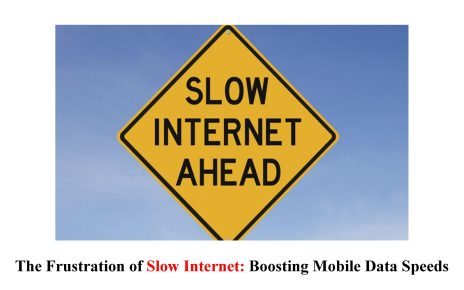Introduction to E-commerce and its Impact on Traditional Business Models
Welcome to the exciting world of e-commerce, where the power of online selling is revolutionizing traditional business models in today’s digital age; more and more customers are turning to their screens for shopping. With just a few clicks, they can explore a vast array of products and services from their homes.
The impact of e-commerce on traditional brick-and-mortar businesses must be addressed. While some may view it as a threat, forward-thinking entrepreneurs see it as an opportunity for growth and expansion. The future holds immense potential for online business owners who embrace the ever-evolving trends in this dynamic industry.
In this blog post, we will uncover the current trends shaping the world of e-commerce and discuss strategies that will help your online business thrive in the coming years. From mobile shopping to personalization and artificial intelligence, we’ll explore how these advancements redefine customer experiences and drive sales like never before.
So fasten your seatbelts because we’re about to embark on a journey into the future of e-commerce – where endless possibilities await those with innovation at heart! Get ready to unlock new heights of success in your online business growth!
Current Trends in the E-commerce Industry
The e-commerce industry is constantly evolving, driven by changing consumer behaviors and technological advancements. As we look at the current trends in the e-commerce industry, it’s clear that convenience and speed are key factors shaping how people shop online.
One of the significant trends is the rise of mobile shopping. With smartphones becoming an integral part of our lives, more and more consumers are using their mobile devices to purchase on the go. This trend has led businesses to optimize their websites for mobile users and develop user-friendly apps to enhance the shopping experience.
Another trend gaining momentum is social media integration into e-commerce platforms. Social media platforms like Instagram and Facebook have become powerful marketing tools for businesses, allowing them to showcase products directly to a large audience. The ability to shop now from social media posts makes it easier for consumers to discover new products.
Personalization is another key trend in the e-commerce industry. Consumers now expect personalized experiences tailored specifically to their needs and preferences. Brands that deliver customized recommendations based on purchase history or browsing behavior will have a competitive edge in attracting and retaining customers.
Artificial intelligence (AI) also plays a significant role in shaping the future of e-commerce. AI-powered chatbots provide instant customer support, while virtual reality (VR) technology allows shoppers to virtually try on products before making a purchase decision.
These current trends indicate that convenience, personalization, and seamless user experiences are crucial for success in today’s rapidly evolving e-commerce landscape.
The Rise of Mobile Shopping and its Influence on E-commerce
Mobile shopping has revolutionized our shopping and has become an integral part of the e-commerce industry. With the increasing adoption of smartphones, consumers now have access to a wide range of products and services at their fingertips. This convenience has significantly impacted traditional brick-and-mortar stores as more people opt for the ease and flexibility of mobile shopping.
One essential influence mobile shopping has had on e-commerce is its ability to reach a larger audience. With over 3 billion smartphone users worldwide, businesses can tap into this vast market by optimizing their websites and apps for mobile devices. This means creating responsive designs that provide seamless user experiences across different screen sizes.
Another important aspect of mobile shopping is its impact on consumer behavior. The convenience of browsing and purchasing products anytime, anywhere, has made impulse buying more prevalent. Consumers are no longer restricted by store hours or physical locations – they can buy with just a few taps on their screens.
In addition to convenience, mobile shopping also offers personalized experiences through data-driven recommendations and targeted advertisements. Businesses can tailor their offerings to individual preferences by leveraging customer data and enhancing customer satisfaction and loyalty.
However, with the rise of mobile shopping comes challenges such as security concerns, slow loading times, and compatibility issues with different devices and operating systems. To overcome these obstacles, e-commerce businesses must prioritize website optimization for speed and responsiveness while ensuring robust security measures are in place.
As technology advances rapidly, it is evident that mobile shopping will continue to shape the future of e-commerce. Businesses must adapt by investing in mobile-friendly platforms and leveraging data-driven insights to deliver personalized experiences that meet evolving consumer expectations.
Personalization and Artificial Intelligence in E-commerce
Personalization and Artificial Intelligence (AI) are revolutionizing how online businesses operate in e-commerce. With AI-powered algorithms, companies can analyze vast amounts of data to understand customer preferences and behaviors. This enables them to create personalized shopping experiences that cater to individual needs.
One notable example of personalization in e-commerce is product recommendations. By leveraging AI, online retailers can suggest relevant products based on a customer’s browsing history, purchase patterns, and demographics. This enhances the shopping experience and increases the likelihood of upselling and cross-selling.
Moreover, AI-driven chatbots have become increasingly popular in providing real-time support to customers. These virtual assistants use natural language processing capabilities to engage with users and promptly address their queries or concerns. By offering personalized assistance round-the-clock, businesses can enhance customer satisfaction while reducing operational costs.
Another aspect where personalization and AI intersect is content creation. Online stores can leverage machine learning algorithms to dynamically generate tailored content for each visitor based on their interests, location, or previous interactions with the website. This helps capture attention and drive engagement by presenting relevant information upfront.
Personalization through AI extends beyond just recommendations or chatbots; it encompasses aspects such as customized pricing strategies and targeted marketing campaigns based on consumer behavior analysis.
Strategies for Online Business Growth in the Future
With the ever-evolving landscape of e-commerce, online businesses must stay ahead of the curve and implement effective strategies for future growth. Here are some key strategies that can help drive success in the digital realm.
First and foremost, investing in a seamless user experience should be a top priority. Customers expect easy navigation, fast load times, and convenient payment options when shopping online. By optimizing your website’s functionality and ensuring a smooth checkout process, you can enhance customer satisfaction and encourage repeat business.
Additionally, leveraging data analytics is essential for understanding customer behavior and preferences. Businesses can personalize their marketing efforts by analyzing purchase patterns and browsing habits to target specific demographics or individual customers. This tailored approach increases conversion rates and fosters stronger customer relationships.
Furthermore, social media platforms play a significant role in driving online sales. Engaging with customers through interactive content such as videos or live streams can boost brand visibility and generate buzz around your products or services. Building an active community on social media platforms will help create brand advocates who will spread positive word-of-mouth about your business.
In terms of advertising strategies, influencer marketing has become increasingly popular in recent years. Partnering with influencers who align with your brand values allows you to reach new audiences organically while building credibility for your products or services.
Embracing emerging technologies such as augmented reality (AR) or virtual reality (VR) can provide unique shopping experiences that set your business apart from competitors. AR/VR technology allows customers to visualize products before purchasing – enhancing confidence while reducing returns.
By implementing these forward-thinking strategies into your e-commerce business model today, you’ll be better positioned for success tomorrow amidst an ever-changing digital landscape.
Importance of Customer Experience and Engagement in E-commerce
In the fast-paced world of e-commerce, customer experience and engagement play a crucial role in determining the success or failure of online businesses. With countless options available at their fingertips, customers have become more discerning. They expect seamless navigation, personalized recommendations, and exceptional service throughout their buying journey.
Creating a positive customer experience begins with understanding your target audience. By collecting data about their preferences and purchase history, you can tailor your offerings to meet their specific needs. This increases customer satisfaction, boosts sales, and fosters brand loyalty.
Engagement is another crucial aspect of e-commerce success. When customers feel valued and heard, they are more likely to return for future purchases. Implementing live chat features or interactive elements on your website allows you to connect directly with customers, address any concerns they may have, and provide real-time assistance.
Furthermore, leveraging social media platforms can significantly enhance customer engagement. By actively participating in conversations related to your industry or products on platforms like Facebook or Instagram, you can build relationships with potential customers and gain valuable insights into market trends.
Investing in post-purchase support is essential for fostering long-term customer loyalty. Providing efficient shipping processes and responsive customer service helps create a positive overall experience that encourages repeat business.
To stay ahead in the competitive e-commerce landscape of the future, businesses must prioritize delivering exceptional customer experiences while finding innovative ways to engage with their target audience continuously.
Challenges and Potential Solutions for E-commerce Businesses
Running an e-commerce business comes with its fair share of challenges. From fierce competition to changing consumer preferences, companies in the online realm need to stay on their toes to thrive. Let’s dive into some of these challenges and explore potential solutions.
One major challenge faced by e-commerce businesses is attracting and retaining customers. With so many online options, standing out from the crowd can be challenging. To address this, companies should build a solid brand identity that resonates with their target audience. This can be achieved through effective branding strategies, creative marketing campaigns, and delivering exceptional customer experiences.
Another challenge lies in managing inventory and logistics efficiently. Without a physical store, e-commerce businesses rely heavily on proper inventory management systems and seamless shipping processes. Adopting advanced technology, such as automation software, or partnering with reliable third-party logistics providers can help overcome these hurdles.
Cybersecurity is another pressing concern for e-commerce businesses today. With the rise in cyber threats, protecting sensitive customer data should be a top priority. Implementing robust security measures like encryption protocols, multi-factor authentication, and regular security audits can minimize risks.
Furthermore, providing excellent customer support across multiple channels is essential for success in the e-commerce industry. Promptly addressing customer queries or concerns enhances trust and fosters loyalty among consumers.
Staying up-to-date with evolving technologies is crucial for sustained digital market growth. Embracing innovations like artificial intelligence (AI) chatbots or virtual reality (VR) shopping experiences can elevate your business above competitors.
Conclusion
As the e-commerce industry continues to evolve, it is clear that online business growth will play a significant role in shaping the future of retail. The impact of e-commerce on traditional business models must be addressed, and businesses must adapt to stay competitive in this rapidly changing landscape.
The current trends in the e-commerce industry highlight the rise of mobile shopping and its influence on consumer behavior. With more people using their smartphones to make purchases, businesses need to optimize their websites and platforms for mobile devices to provide a seamless shopping experience for their customers.
Personalization and artificial intelligence also play an essential role in driving online business growth. Businesses can better understand customer preferences and tailor their marketing strategies by leveraging data analytics and AI technologies. This level of personalization enhances the customer experience, increases conversion rates, and drives revenue growth.
To achieve sustainable online business growth in the future, companies must prioritize customer experience and engagement. Providing exceptional customer service, offering personalized recommendations, and creating interactive experiences are all key factors contributing to customer loyalty and repeat purchases.
However, navigating e-commerce businesses’ challenges is essential for long-term success. Issues such as cybersecurity threats, logistics management, inventory control, and competition from global players require careful consideration, along with finding practical solutions tailored specifically to your business needs.
In conclusion,
The future of e-commerce holds tremendous potential for online business growth. By embracing current trends such as mobile shopping and utilizing personalization techniques with AI integration while prioritizing exceptional customer experiences, businesses can position themselves at the forefront of this digital revolution.
Remember that staying adaptable yet innovative will be critical as new technological advancements shape consumer expectations. With a strategic approach towards addressing challenges head-on and a relentless focus on providing value-driven solutions, you can unlock unlimited opportunities for your online business growth!
So why wait? Embrace these trends today; take bold steps forward into the world of e-commerce, where endless possibilities exist. The future is now, and it’s time to thrive.



